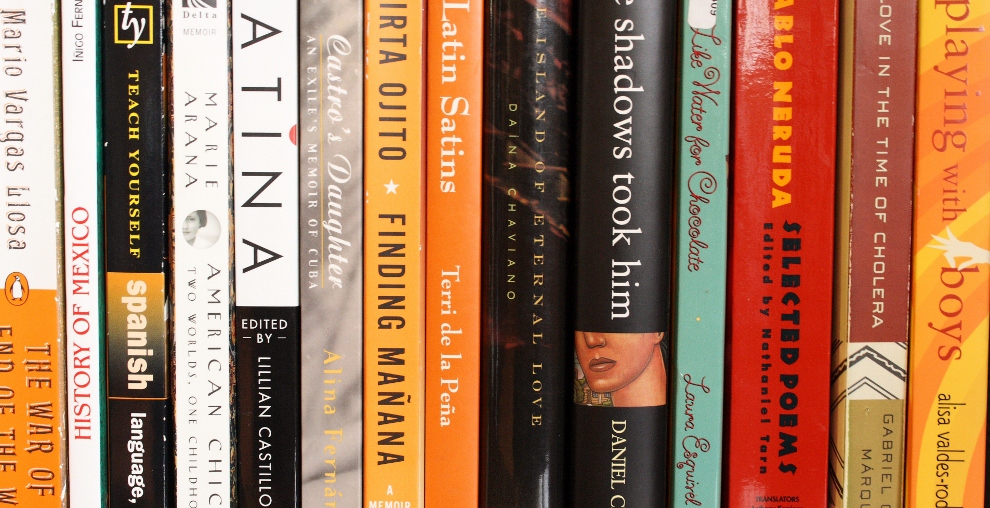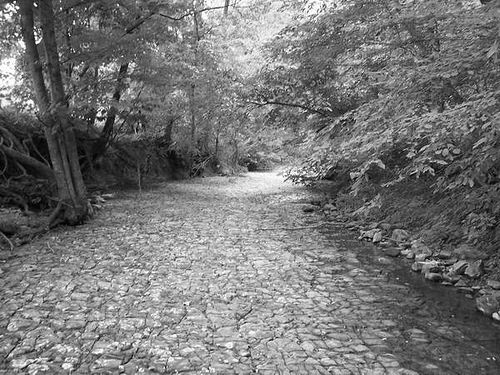Reading in Spanglish

12
Oct 2011
The book that started it all . . .
posted in: Authors, books My interest in Latino literature began with one book, purchased on an unassuming trip to the bookstore when I was about 14 years old. That book was Woman Hollering Creek by Sandra Cisneros. Reading this book made me realize that there wasn’t a generic, white “normal” in which books are written. After reading the book, I realized that books can convey a sense of culture in such a subtle way that just “gets it.” Like most great books, I read and loved this book when I was young, and re-reading it over the years always conveys a new sense of meaning. Even now, re-reading the stories in preparation for writing this post, I had new understanding while reading the book.
My interest in Latino literature began with one book, purchased on an unassuming trip to the bookstore when I was about 14 years old. That book was Woman Hollering Creek by Sandra Cisneros. Reading this book made me realize that there wasn’t a generic, white “normal” in which books are written. After reading the book, I realized that books can convey a sense of culture in such a subtle way that just “gets it.” Like most great books, I read and loved this book when I was young, and re-reading it over the years always conveys a new sense of meaning. Even now, re-reading the stories in preparation for writing this post, I had new understanding while reading the book.
Woman Hollering Creek is a collection of short stories – vignettes, really – that highlight stories about different women. “My Lucy Friend Who Smells Like Corn” opens with a little girl:
Lucy Anguiano, Texas girl who smells like corn, like Frito Bandito chips, like tortillas, something like that warm smell of nixtamal or bread the way her head smells when she’s leaning close to you . . .
I think I gasped the first time I read those lines. Somebody else knows that there’s always that one person who always smells like the steam rising from a pot of tamales! Keep reading and you’ll discover a writing that is vivid and peppered with phrases in Spanish. The way I talk. This is the first book I ever read like that.
The stories start out with young voices and as you get further through the book the narrators become older, with complex problems. “One Holy Night” is the story of a young girl, seduced by an older man who disappears when she becomes pregnant:
“We heard nothing for a long time. Abuelita took me out of school when my uniform got tight around the belly and said it was a shame I wouldn’t be able to graduate with the other eighth graders.”
Another sucker punch! This is the kind of writing I live for – something raw and so real you almost can’t believe it.
This time around, the title story “Woman Hollering Creek” had a profound meaning to me, because now I am a mother. If you are a mother, you know that your whole perspective on the world changes the moment you give birth. This is the story of Cleófilas, a Mexican immigrant who ends up alone in the U.S. with an abusive husband, a son, and a baby on the way. When she moves into the town, she takes note of the strangely named creek (which is real, by the way). As time goes on, she begins to wonder if it is really named after La Llorona.
“Perhaps La Llorona is the one they named the creek after, she thinks, remembering all the stories she learned as a child.
La Llorona is calling to her. She is sure of it. Cleófilas sets the baby’s Donald Duck blanket on the grass. Listens. The day sky turning to night. The baby pulling up fistfuls of grass and laughing. La Llorona. Wonders if something as quiet as this drives a woman to the darkness under the trees.”
That darkness is something I think that all mothers know about but is a taboo topic. The spectre of depression that looms over a mother and her newborn child. The power of birth is so forceful I think it is only natural that the flip side of all that joy is just as big, making it a terrible thing.
Do you remember La Llorona from your childhood? My torturous cousins blended the stories of La Llorona and Bloody Mary, saying that she would appear if you lit candles in a dark bathroom and looked in the mirror and flushed the toilet and goodness knows what else. I think I ran away from the toilet each time I flushed it for the next 10 years.
Well, for me this is the book that started my quest to find others like it. I’ve read many more, and I have a giant stack plus a library list that I’m planning on reading — and I’ll be blogging about it all. Do you have a similar story? Tell me about it!
























